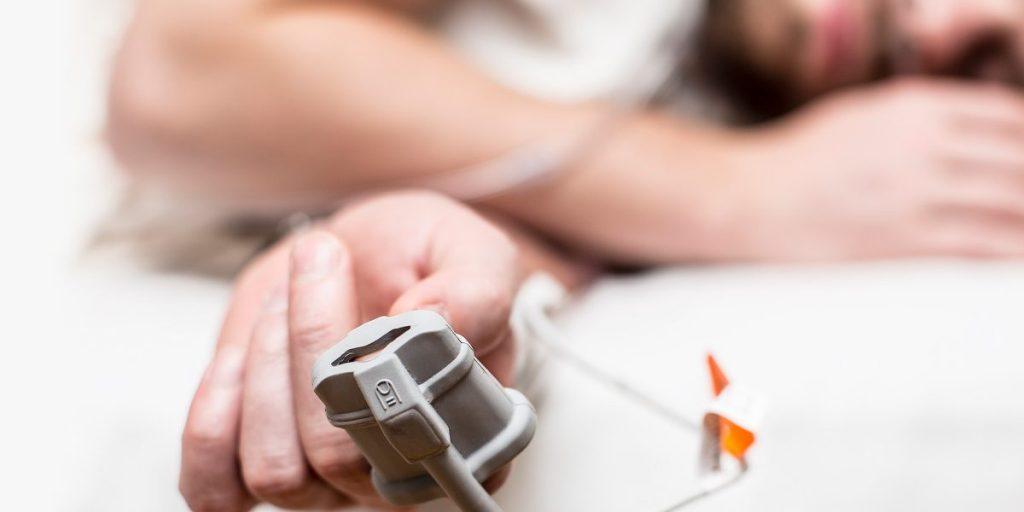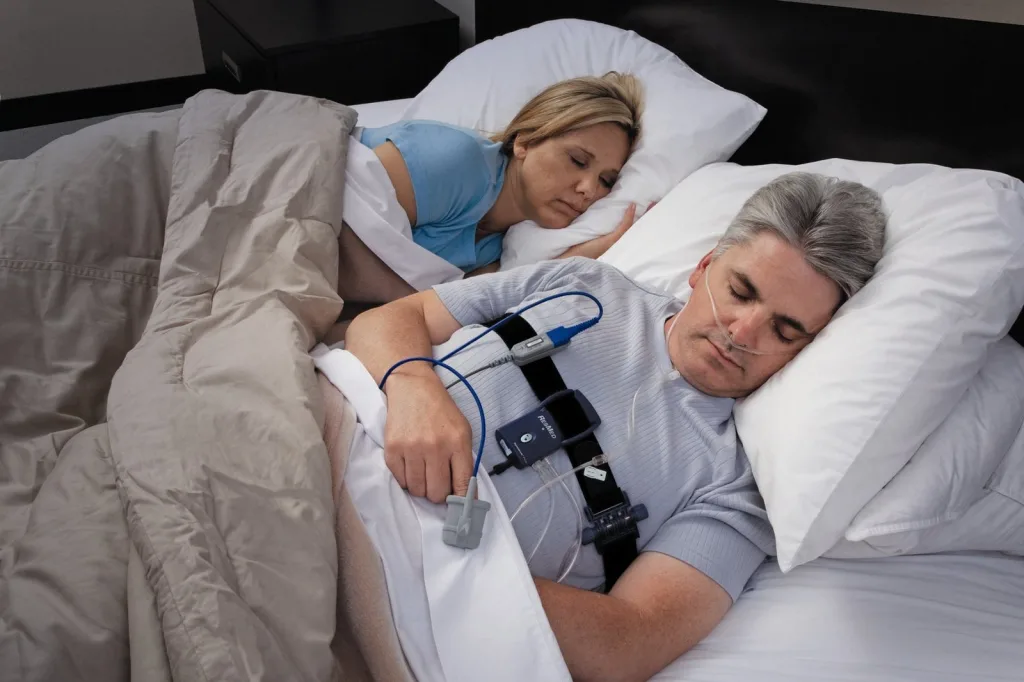A sleep study, also known as polysomnography, is one of the most important tools in the investigation of this condition. In fact, many people who suffer from apnea go undiagnosed because they do not have access to such a study.

The most common sleep disorder is obstructive sleep apnea (OSA). In OSA breathing may stop and restart repeatedly during the night while you, causing stress and fatigue in your body. In the absence of treatment, it can be life-threatening, and it can cause the patient to feel exhausted even after getting a full night’s rest. Experts classify sleep apnea into several types, including central sleep apnea, which occurs when the brain fails to send the proper signals to the breathing muscles; obstructive sleep apnea, which occurs when the throat muscles to relax too much, allowing the tongue and/or other tissues around to obstruct the throat; and complex sleep apnea syndrome, which is a combination of the previous two types of apnea. Doctors characterize this disorder by symptoms such as gasping for air while asleep, waking up with a dry mouth, loud snoring, periods during which breathing stops completely, insomnia or excessive sleepiness during the daytime, irritability, and difficulty concentrating. The majority of people go through several sleeping cycles during the night, and sleep disorders can disrupt these normal cycles.
A doctor must diagnose this condition, particularly in determining the type of apnea that is present, and must consider a number of factors. For example, whether or not the patient has a narrow airway, excessive weight, is older or has a family history of nocturnal problems, drinks alcohol or sedatives, uses tobacco, has nasal congestion, or has other medical conditions are all factors to consider when evaluating the patient. This condition affects males more frequently than females, and it can lead to complications such as high blood pressure or heart problems, diabetes, fatigue, and liver issues. The experts at 1-888-Sleep-Doc have years of experience in this field.
Polysomnography is a test that is used to diagnose sleeping disorders. It may measure brain waves, heart rate, breathing, the amount of oxygen in your blood, as well as muscle movements, particularly eye and leg movements. However, depending on your circumstances, you may be able to complete the procedure in the comfort of your own home using a home sleep testing device instead of visiting a clinic or hospital. Our home sleep test device studies your sleep patterns and is able to retrieve data using actigraphy to measure oxygen saturation, heart rate, body position, and snoring. Your doctor may recommend a sleep test, to rule out obstructive sleep apnea.

If your doctor has recommended that you undergo polysomnography, you will most likely need to take several steps to prepare. Some of these precautions include refraining from consuming alcoholic beverages or foods that contain caffeine the day before and the day of the test. These substances have the potential to disrupt your sleeping patterns as well as exacerbate some of the symptoms of a sleeping disorder. It is best not to take a nap in the afternoon before a sleep study. Avoid using gels, lotions, or colognes on your skin because they may interfere with how well the electrodes adhere to your skin. If the doctor orders a home test, the professionals at 1888-sleep-Doc will provide you with a set of easy instructions that are similar to the instructions for the in-clinic test, but perhaps not as strict. Adhere to your regular bedtime routine for a home test and double-check that the sensors have been properly placed on your body. You should also carefully follow the instructions for activating the machine during the test. Depending on your medical condition, your doctor may recommend that you keep a sleeping log. When you conduct the test at home and wake up the next morning, remove the sensors from the device and place it back in the case from which it was delivered. It may request that you return the device to the office or for proper recycling by mail, depending on the type of device.
If a test is conducted in a facility, you will need to arrive in the evening and stay overnight there. It is common practice for clinics to allow patients to bring items that they use for their normal bedtime routine, as well as their own set of night clothes.
Suppose the first study has confirmed the presence of obstructive apnea. In that case, doctors may recommend second polysomnography with the second test taking place while the patient is wearing a positive airway pressure (PAP) machine to monitor the symptoms while using the device. A continuous positive airway pressure (CPAP) machine is a device that is meant to keep the airways open while the person is sleeping. It does this by providing a steady stream of air to the airways.
There are many benefits of treating sleeping disorders.
(Results may vary, depending on compliance, maintaining proper diet, and exercise)
Disruptive sleep should Not be ignored. It should be taken seriously because of the negative consequences that can be long-lasting and potentially life-threatening. You should schedule a polysomnography home test with us right away at 1-888-Sleep-Doc or visit our website if you have any of the symptoms of OSA or other sleeping issues, such as fatigue, insomnia, sleepiness during the day, interrupted sleep, drowsy driving, or if your partner has noticed that you snore or stop breathing frequently. Remember Quality Sleep = Quality Life.
© 2023 1-888 Sleep-Doc, Inc. All Rights Reserved.